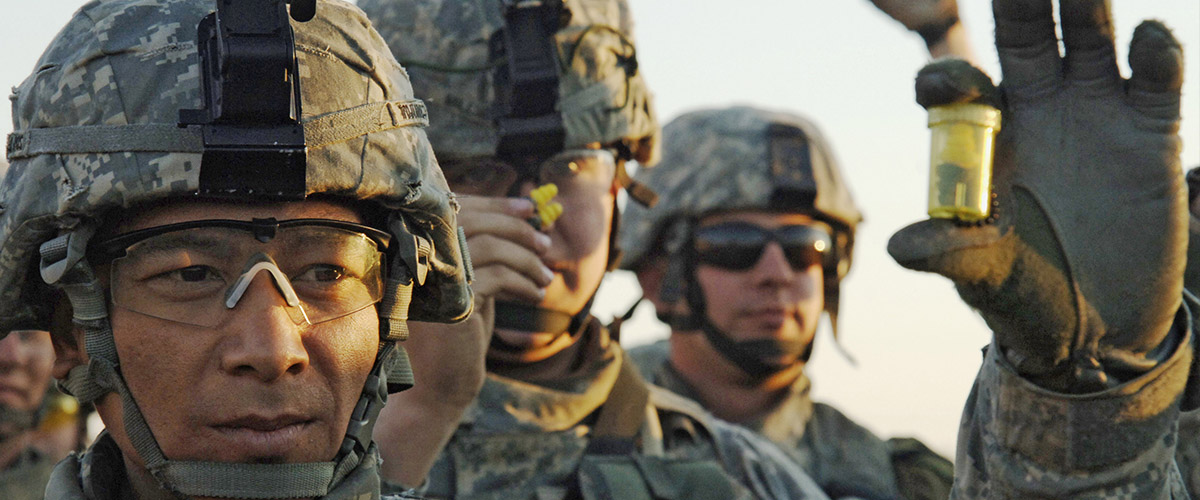
Lawmakers Introduce Bill That Would Recognize Nine More Agent Orange Diseases
By the late 1970s, the delayed health effects from Agent Orange exposure in the Vietnam War rose to the level of national concern once it was realized that small traces of toxic chemicals were in the Monsanto herbicide. While Agent Orange exposure doesn’t get the same amount of press that it once did, it still remains a significant public health issue. Particularly in the lives of those who served in the Vietnam War. The substance covered more than 20% of South Vietnam between the early 1960s and 1970s. The attempt to flush out enemies also carried unforeseen damaging and complex medical issues for American troops serving in the area.
Vietnam Veterans are still for the most relatively young. As a result, new diseases linked to the toxins in Agent Orange continue to be uncovered. For this reason, in a rare act of unity, lawmakers in the 116th Congress reached across the aisle to introduce the bipartisan bill Keeping Our Promises Act. This bill would add nine medical conditions to the presumptive disability list of illnesses that result from Agent Orange exposure.
The VA’s Presumptive Disability Benefits
There are certain conditions, or disabilities, that the VA presumes were caused by military service. Often, presumptive disabilities are because of unique circumstances that were specific to a Veteran’s military service. When a Veteran receives a diagnosis for a certain condition, they can receive disability compensation from the VA by providing documents that show they were in said location during a specific time frame.
For Veterans with Agent Orange exposure conditions, that time frame is from January 9, 1962, through May 7, 1975, in Vietnam and surrounding territories where the herbicide was spread.
What is the Keeping Our Promises Act?
The Keeping Our Promises Act, or H.R. 2200, was introduced by Arkansas Representative Bruce Westerman. The bill seeks to amend title 38 of the United States Code by expanding the list of diseases covered by the Vietnam presumption of service.
New disease on the list will include the following:
- Prostate cancer
- Bladder cancer
- Hypothyroidism
- Hypertension
- Stroke
- Early-onset peripheral neuropathy
- AL amyloidosis
- Ischemic heart disease
- Parkinson’s disease
The disease will need to manifest to a degree of disability at 10 percent or more.
What is agent orange?
Agent Orange was the code name for a blend of tactical herbicides used by the U.S. military from 1962 to 1971 during the Vietnam War. The military’s goal was to remove the leaves of trees and other dense tropical foliage that provided enemy cover.
In just nine years, the military sprayed more than 19 million gallons of various combinations. However, Agent Orange was the most used on forests in:
- Cambodia
- Laos
- South Vietnam
- Saigon
The Agent Orange Act of 1991 specifies that veterans who served anywhere in Vietnam between January 9, 1962 and May 7, 1975 are presumed to have been exposed to the herbicide. In fact, Veterans do not need to prove they were exposed to Agent Orange or other herbicides to get disability compensation for the disease related to Agent Orange exposure.
Vietnam service includes veterans who served on land or on the inland waterways.
What does agent orange do to the human body?
Currently, there are hundreds of thousands of American veterans living with the effects of or who have died from agent orange exposure. Currently, the VA recognizes certain cancers and other health conditions as diseases associated with Agent Orange exposure.
Currently, the VA recognizes the following conditions for Agent Orange exposure disability claims:
- Chronic B-cell Leukemias
- Chloracne
- Diabetes Mellitus Type 2
- Hodgkin’s disease
- Multiple Myeloma
- Non-Hodgkin’s Lymphoma
- Porphyria Cutanea Tarda
- Respiratory Cancers
- Soft Tissues Sarcomas
What are the signs and symptoms that I’ve been exposed to agent orange?
If you served in Vietnam and are dealing with any of the disease listed, then you are likely to receive disability for your Agent Orange exposure. The Keeping Our Promises Act aims to create an easier path for Veterans to get the disability coverage they deserve for conditions the VA does not currently recognize as “presumptive”.
We are Veterans Helping Veterans
The Veteran Legal Assistance Program is here to support veterans and active duty soldiers. In addition to offering valuable information, we are here to amplify the voices of Veterans and their families. If you are in need of assistance, contact the Veterans Legal Assistance Program and let us know how we can help.
We’ve got your six.



